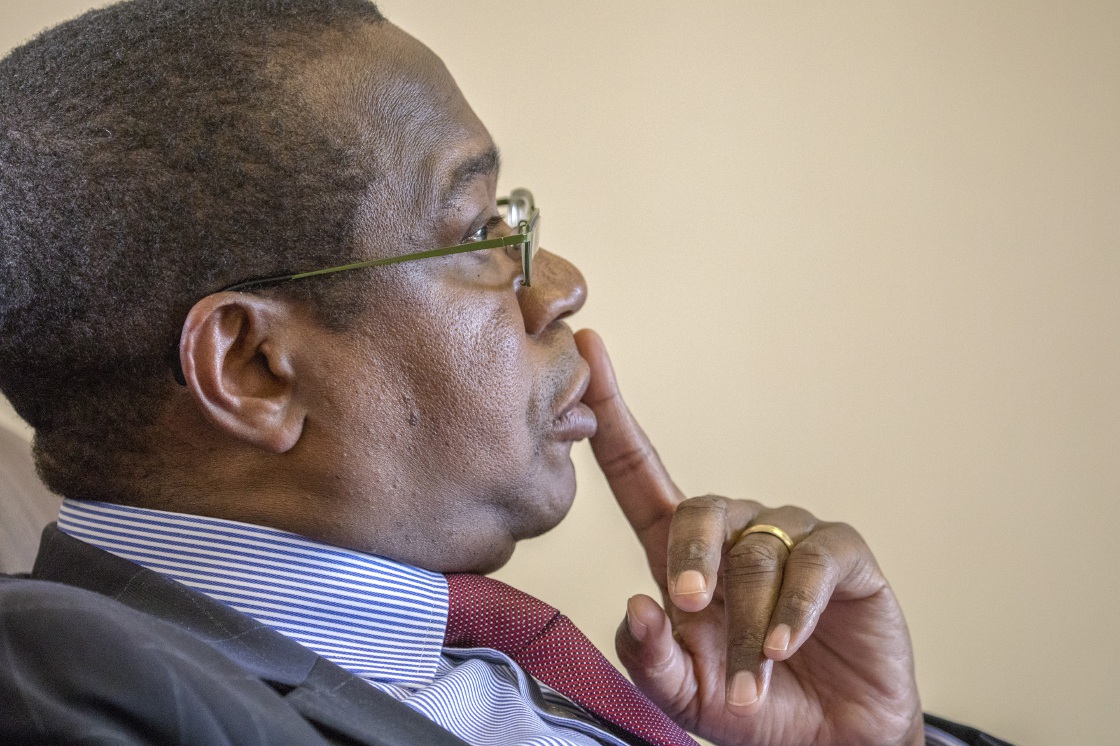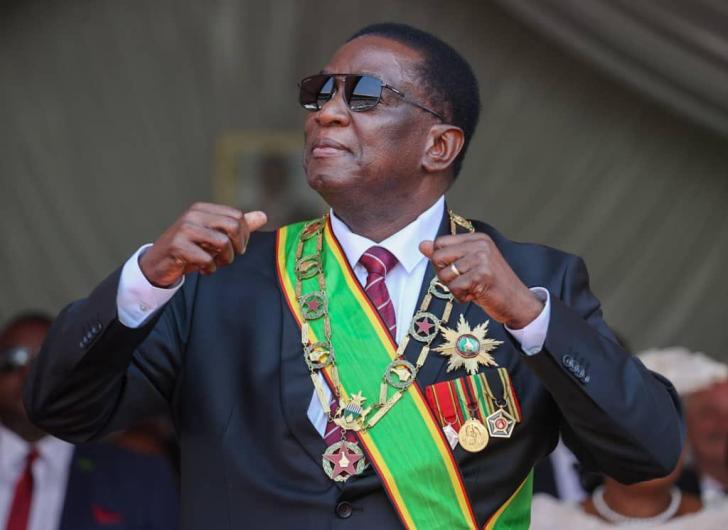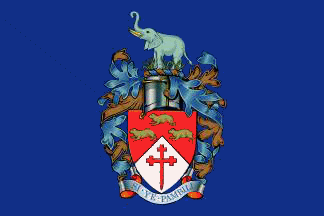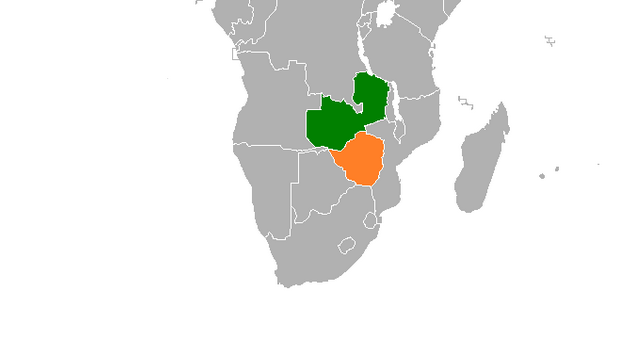Let me confess. I never set out to write about Frederick Shava. In fact, I doubted there was anything worth saying. But that doubt is precisely the problem. Silence about him has been easy because he has perfected the art of disappearing in plain sight. However, invisibility is not humility. It is sometimes a mask for neglect and indifference. How do you profile a man whose greatest political skill is to be utterly forgettable?
Every country has invisible bureaucrats who glide through the corridors of power, collecting perks while sidestepping responsibility. In Zimbabwe, some have elevated that into an art form. Dr. Frederick Shava is one of its most accomplished practitioners. His career proves that in our teapot republic, you do not need to deliver anything meaningful. You only need to master the craft of remaining unbothered, unaccountable, and unseen. What sets him apart is not what he has done, but the remarkable way in which he does nothing at all. Institutions rarely collapse because of one spectacular scandal. They decay quietly, hollowed out by the comfort and apathy of those entrusted to serve.
The late Alex Magaisa wrote about Shava in 2021, describing his cabinet career as "a Lazarus experience" made possible by the "slippery slopes of impunity." So why another article? What has changed? Or, as a colleague quipped when I mentioned my idea of writing another article about him, "What has he done?" We both laughed when I replied, "It's probably about what he hasn't done." Back in 2021, his ministerial appointment was fresh. There was public attention, political expectation, and pressure. Now the urgency is gone. And yet, this is exactly when we should be taking notice. Invisible ministers thrive in quiet seasons. In the glare of public scrutiny, they might attempt to perform, but once everyone's attention shifts, and they are left in the shadows, they revert to form. And that, I believe, is exactly when we must pay attention.
The Invisible Minister: How Shava perfected the politics of absence
Shava is the very embodiment of negligence and incompetence. He is a man fixated on flamboyance, utterly indifferent to the responsibilities of public office. For him, ministerial or ambassadorial posts seem less a call to service and more a ticket to bankroll his wannabe-luxurious lifestyle. He has a talent for sandwiching incompetence between ostentation and indifference. Honestly, comrades, it is an irritation – and wan irony – to devote precious words to someone so staggeringly flat in terms of policy contributions, someone relegated to the dustbin of political irrelevance and the bottom rung of bureaucratic competence. But here we are. Zimbabwe's enduring curse is to watch someone like Shava preside over assignments critical to our national interests.
You know, Sithembiso Nyoni used to take plenty of flak for being the consummate political survivor, the permanent fixture in government, practically part of the furniture. But Frederick Shava matches her stride for stride; in fact, the gentleman has surpassed Sithembiso Nyoni! Who could forget his so-called apology after the Willowvale scandal, a masterclass in political evasion? His "apology" was not directed at the nation he had sworn to serve, but to the president. A gesture of self-preservation masquerading as contrition. How much more self-serving can one get? For those unfamiliar with the "gentleman" in question – owing mostly to his chronic absence from the national stage – rest assured, you are not missing much. Do not mistake his invisibility for the mark of a humble workhorse, quietly toiling behind the scenes. No! Shava's silence stems not from diligence but from sheer indifference. Just the other day, another friend who heard I was writing this piece asked, "Wait, he is still around? I thought he retired ages ago." If that is not a testament to his invisibility, I don't know what is. Yet here I am, against my better judgment, compelled to write about a "forgotten" minister in charge of something as consequential as Higher and Tertiary Education.
No substance: Shava's rise and fall
Now, let us rewind to origins. To be fair, if you consult the Concise Guide to the First Parliament of Zimbabwe (1984/85 edition), his early story sounds almost noble, worthy, at least on paper, of the luminaries of his era. This Ministry of Information publication on national leadership portrayed men like Shava as the epitome of the liberation struggle, painting them as the architects and central cast of the journey to independence: "Their personal lives tell the epic of the fight for justice in Zimbabwe." In the early 1980s, Shava was cast as a humble giant. His credentials were impressive. Frederick Shava, then Minister of Labour, Manpower Planning and Social Welfare, served as Member of Parliament for Midlands, Chairman of the ZANU(PF) Midlands Province, and Government Chief Whip. At just 33, he was seen as a rising star. In 1965, he was expelled from Kutama Mission for his student activism, in particular, for demonstrating against UDI. Like many of his contemporaries, he left the country. He studied chemistry and biology at the University of Zambia, graduating in 1973, and then earned a doctorate on a Commonwealth scholarship at University College London. In university, he was deeply involved in liberation politics, eventually leading ZANU (PF) in Europe and serving as chief representative. He even participated in the Malta talks in 1978 and in the Lancaster House conference. By all accounts, Dr. Shava had the pedigree and promise befitting a productive future national leader.
So, with all this promise, where did it all go wrong for Comrade Dr.? How did a man with such potential degenerate into an indifferent, invisible, and spectacularly incompetent minister? For that, we turn to the Willowvale corruption scandal – a turning point that would redefine his legacy.
At this point, even his distinguished biography could not distract from the record of corruption, mediocrity, and incompetence. The irony is almost poetic: the man studied parasitology, and, in politics, he became the consummate specimen, mastering the art of lying low and invisible and thriving in the shadows. Shava has perfected the parasite's craft: always present, never obvious, expertly and quietly nibbling away while none of us notice. But promise is not destiny. The arc from humble liberation hero to political parasite bent sharply at Willowvale. The credentials that once symbolized hope now serve as a prelude to disappointment. Willowvale defines Shava's legacy. The scandal ripped away his disguise and exposed a man consumed by self-interest. Let us revisit that moment.
The Sandura Commission: Evidence, abuse, and evasion
The Willowvale Motor Industries Commission of Inquiry, established in January 1989, set out to investigate the distribution of vehicles assembled by Willowvale, a state-owned company with a long history in Zimbabwe's industrial landscape. Contrary to widespread rumor, Willowvale had always been permitted to sell a small percentage of its vehicles directly to individual buyers, not just to dealers. The commission found "nothing wrong or unlawful with Willowvale selling motor vehicles directly to the members of the public." The real issue, it concluded, was when those in "a position of authority or influence" leveraged that access to buy vehicles, not for legitimate use, but to obtain vehicles for friends and associates, or for quick profit. This practice, the report notes, constituted "a gross abuse of a Minister's position, powers and privileges."
A special allocation scheme existed to help parliamentary backbenchers buy vehicles, recognizing the difficulties of securing transport in a country gripped by shortage. By policy, this scheme was meant for backbencher MPs only. As the commission confirmed, "Ministers and their Deputies and Governors already had Government vehicles for use on their parliamentary duties. So, it was a policy to deliberately exclude non-back-bencher MPs." Yet some ministers, exploiting the uncertainty in procedures, bought vehicles directly from Willowvale – often multiple units – then flipped them for profit. What began as a solution to a practical need rapidly mutated into an engine for personal enrichment.
The allegations against Frederick Shava were clear: he used his position as minister to acquire several vehicles which he resold at prices far above the legal maximum. The commission documented four such cases, each revealing a pattern of self-dealing and dishonesty. Shava and his associates offered explanations for each transaction, but the commission found their testimony "incredible" and their accounts "unreliable." As the report details, "We believe that what happened was that Shava purchased the motor vehicle… and resold it… at substantial profit as he did in respect of the other three vehicles. Both Shava and Mahomed were unreliable witnesses whose evidence cannot be believed."
In one year alone, Shava bought and resold a Mazda 323, a Nissan Cabstar truck, a Mazda B1600, and a Toyota Cressida, pocketing roughly $140,000 in admitted profits – likely an underestimate. On the Cressida alone, he netted over $62,000 in a single transaction, initially lying under oath about the sale price before being confronted with evidence. The commission found that, "In reality, the figure may be much higher. He ignored the price control legislation and made huge profits." Their conclusion left no doubt: "It is obvious from the evidence that Shava was behaving like a car dealer." Perhaps most damning was Shava's conduct before the commission. Not only did he exploit the system for personal gain, but he also lied repeatedly under oath. The report closes by recommending criminal prosecution for perjury and subornation of perjury, underscoring the depth of institutional decay. The commission's findings show the original intent of the Willowvale scheme – a practical response to scarcity – had mutated into a mechanism for elite self-enrichment and impunity. It is a textbook case of how privilege, power, and lack of accountability undermined public trust and institutional integrity.
The Willowgate scandal did not arise in a vacuum. As Hevina Dashwood observes, Zimbabwe's post-independence development strategy shifted dramatically during the 1980s. Early on, the state claimed to champion equity and address the welfare of the poor. But as the decade wore on, this commitment faded. The ruling elite, once allied with the working class and peasantry, became increasingly absorbed into a culture of privilege and private accumulation. Dashwood writes: "The loss of priority attached by the ruling elite to meeting the welfare needs of the poor was as a result of the embourgeoisement of the ruling elite, and the resultant embracing of a capitalist ideology." Instead of holding power as a tool for public good, Zimbabwe's post-liberation leadership began to see the state itself as an engine for personal advancement. Corruption was not an accidental byproduct: it became a central mode of wealth accumulation. As class alliances shifted, the social base of the original development strategy eroded, replaced by a network of accommodation and shared interests among the ruling, agrarian, and entrepreneurial elites. "The formation of a state-based bourgeoisie has led to an erosion of the previous alliance between the ruling elite and the peasantry and working class," Dashwood argues, making it clear that the political logic of post-independence Zimbabwe enabled comrades to loot under the guise of reform. Corruption, then, became both a symptom and a strategy: a way for a new class to consolidate wealth, protect itself, and rationalize impunity. For those who track Zimbabwe's long, sordid saga of corruption and self-aggrandizement, Shava's name looms large at the heart of the Willowgate scandal, a caper so audacious it turned "Willowgate" into shorthand for political rot. Yet instead of facing justice, Shava was plucked from the jaws of accountability by none other than the late President Robert Mugabe, who dragged the nation through the mud to shield his loyal comrade. As Mugabe infamously rationalized, "Who among us has not lied? Yesterday you were with your girlfriend and you told your wife that you were with the Prime Minister. Should you get nine months for that?" With that, Shava was spared the consequences that might have finally set a standard for public office. After Mugabe's presidential pardon, the state quietly dropped plans to prosecute other ministers accused of perjury in one of Zimbabwe's earliest, and most glaring, post-independence corruption scandals. That was the real turning point. Had Shava faced justice, perhaps a powerful lesson would have been sent to all who followed. Instead, a crucial corrective moment slipped by, and the country has been paying the price ever since.
I am not naive. Every Zimbabwean carries a small corruption chip in their DNA. There are no saints in this republic. Let me be generous with "we" here: We have all cut corners before. It is all corruption-But not all corruption is the same, and not all of it is equal. Some corruption, to borrow from Orwell, is more equal than others.
Sometimes people cut corners out of necessity, driven by archaic bureaucracy or a system designed to frustrate honest effort. We all know how certain environments make such behavior almost inevitable. However, the Willowgate scandal was something else entirely. Those comrades knew exactly what they were doing – the scheme was meticulously engineered to benefit the few while gutting a policy meant for the many, shortchanging not just the nation but entire industries in the process. Yes, I know Shava was not alone, nor was he the biggest culprit. But the parasitologist is my subject today. Setting aside the already-settled findings of the Sandura Commission, let us state the obvious: Willowgate became the template for the government's now-familiar catch-and-release approach to corruption. It was a squandered opportunity to demand real accountability from public officials. Some comrades learned nothing; if anything, once they tasted the honey, like bears to a hive, they just kept coming back for more.
Scandals like Willowgate tell a now familiar story: the state's architecture converted into a tool of the powerful. As long as this elite cohesion persists, the public can expect the spectacle of catch-and-release justice and the recycling of compromised ministers. The logic of elite cohesion, not just personal vice, explains why figures like Shava remain invisible, indispensable, and untouchable in Zimbabwean politics.
From diplomatic deadweight to academic eyesore
After years abroad, Shava was parachuted back to replace the late Gen SB Moyo as Minister of Foreign Affairs and International Trade. Some comrades touted his UN tenure and ambassadorial post in China as proof he was qualified, but Shava was out of his depth from day one. It did not take long for comrades and citizens alike to see through the act.
In Beijing, Shava was a presence in name only. To the growing Zimbabwean community, he was the ambassador who was never there, a man whose absence became his calling card. His style was unmistakable, and unmistakably negligent. The embassy under his watch felt less like a lifeline for citizens abroad and more like a locked building with a flag outside. "Everyone knew the embassy was not helpful. That is his legacy," one former resident told me. To give him his due, Shava could be generous with ideas. He lent his name to cultural diplomacy projects and even persuaded other ambassadors to back them. Yet, when the music started and the doors opened for festivals and exhibitions, he was nowhere to be seen. While other African envoys stood among their people, Zimbabweans knew they would be orphans at their own embassy.
The contrast with his predecessor could not have been sharper. Chris Mutsvangwa made the mission a home away from home. The community gathered for discussions and simple fellowship. Under Shava, that warmth vanished. "We all knew," a longtime resident said, "anongodada, anovhaira, haadi zvevanhu" – he is flamboyant, showy, and wants nothing to do with people. The embassy became a dead letter office, and Shava kept his distance, uninterested in the ordinary affairs of his countrymen. If the job was simply to represent the country, he failed even at that. It was only after Shava left, when Chikava briefly took over, that the mission stirred back to life. People returned. Calls were answered. Help was given. "It was night and day," one resident told me. "When Shava came in, everything dried up."
His performance in foreign affairs was so lackluster, so utterly devoid of substance that, apparently, the president, running low on patience and parking spaces for political baggage, quietly shuffled him over to Higher Education. There, as expected, Shava has been about as useful semunhenga wegarukuni mu chamupupuri: always present, never actually holding anything down. Shava is the definition of unnecessary political baggage. One wonders what "deserving" comrades in ZANU PF really think of this perennial survivor.
His time in international diplomacy was not an isolated lapse. In Beijing, Shava perfected the art of political invisibility, mastering the skill of holding a post without ever truly being present, collecting the perks while avoiding the people he was meant to serve. That same method followed him home. His years in China were less an anomaly than a dress rehearsal for the role he now plays in Harare, where the politics of absence has become a governing principle.
Applause for apathy: Shava's record in higher education
For once, Shava has set a record, although it is one nobody wants to celebrate. He is, without question, the worst minister ever to preside over higher education in this country's history. Under his watch, the sector has sunk into an open crisis: prolonged strikes, collapsing academic standards, underfunded research, and a wholesale retreat from the core mission of universities. Wherever Shava lands, whatever ministry he is given, the faint glimmer of progress left by his predecessors quickly dims, extinguished by his trademark indifference. And, considering the quality of our ministerial bench, that says a great deal. The portfolio changed, but the performance did not. In his new role, Shava brought the same calculated disengagement that had defined his diplomatic posting.
When he replaced Professor Amon Murwira in 2024, there was a flicker of optimism. Murwira s tenure had been defined by autocratic leadership, dismal lecturer pays, and the much-hyped Education 5.0 policy that was lofty in rhetoric but threadbare in funding and chaotic in execution. A new minister, especially one with decades of diplomatic experience, seemed to promise a reset. "We thought he would listen and consult, not dictate," said one senior academic. That hope did not last. In practice, Shava has been absent, leaving the ministry's public leadership to his powerful permanent secretary, Professor Fanuel Tagwira. From presiding over events to driving policy, Tagwira remains the dominant figure, just as he was under Murwira. The secretary is in charge, the minister is nowhere to be seen. That is why nothing changes. Nowhere is the dysfunction more visible than at the University of Zimbabwe. Once the flagship of the nation's academic system, it has been crippled by a lecturers' strike that has stretched on for months. Salaries have been reduced to a flat figure for everyone, from janitors to professors. Junior lecturers demand a return to the pre-2018 wage of US$2250, yet the ministry remains silent. When Parliament demanded a ministerial statement, Shava ignored the request.
Instead of intervening, the university retaliated by freezing salaries for striking lecturers and hiring poorly qualified adjuncts for $3.30 an hour. The Association of University Teachers sought a High Court interdict to stop the 44th graduation, calling it "the most grave academic fraud ever to exist in our nation," and declaring that UZ had become a degree printing machine like pizza, one can now order a degree. Meanwhile, the ministry's social media accounts project a parallel reality, filled with photo opportunities and ceremonial speeches, as if nothing is wrong. Research remains chronically underfunded, innovation hubs are understaffed, and universities are told to survive through side hustles, selling eggs, chickens, and branded caps instead of focusing on teaching and scholarship.
The rot is deep, yet one thing is constant: every month-end, Shava collects his perks. As the True Patriots blog put it,
"Higher and Tertiary Education Minister Frederick Shava, a Willowgate scandal veteran, runs the ministry like a dodgy dealership, where instead of fixing the engine, they just suspend the driver. Since his appointment, at least 15 students have been suspended nationwide. His official title might as well be Minister of Mismanagement and Memory Loss. Let us call this what it is: a war on curiosity."
There is no learning, academic standards are in free fall, and higher education is in existential crisis mode. The tragedy is not simply that Shava is failing at his job. It is that his failure has become the ministry's operating principle. In the end, the invisible minister has managed to leave his mark, not through vision or leadership, but through the slow, suffocating absence that drains life from every institution he touches.
Well, here we are, finally at the end. Who knew the art of doing nothing could take up this much space? If you nodded off while reading, I do not blame you. That, after all, is the true power of the invisible minister – to lull an entire nation to sleep while quietly collecting perks in silence. But if there is one thing to take away from this story, it is this: Zimbabwe is not only undone by spectacular scandals, but by a legion of invisible ministers and bureaucrats who are masters of evasion and inaction. Their greatest talent is making themselves scarce while the country continues to pay the price. And yes, in case you missed it, the Honourable Minister of Higher and Tertiary Education, Innovation, Science and Technology Development is still Dr. Frederick Shava. If you had forgotten him, you are not alone. Invisibility is his only lasting contribution – a perfect coda for a man whose public life was first defined by Willowgate's impunity and now by the politics of absence. That, in the end, is the real tragedy.
Tatenda is a Rhetorician and Zimbabwe political history enthusiast. He can be reached on his Twitter at @tatendamashanda.
- newZWire
 Zimbabwe announces sweeping reforms
Zimbabwe announces sweeping reforms  ZEP holders face renewed uncertainty
ZEP holders face renewed uncertainty  China-Russia LNG pipeline to deliver shock
China-Russia LNG pipeline to deliver shock  ZSE and VFEX recover after weak 1st half
ZSE and VFEX recover after weak 1st half  Gold edges up as traders await guidance
Gold edges up as traders await guidance  Spur wants a bigger bite in Zimbabwe
Spur wants a bigger bite in Zimbabwe  Young Investment Professional (YIP) Graduate Programme 2019
Young Investment Professional (YIP) Graduate Programme 2019 










 Young Investment Professional (YIP) Graduate Programme 2019
Young Investment Professional (YIP) Graduate Programme 2019
Editor's Pick